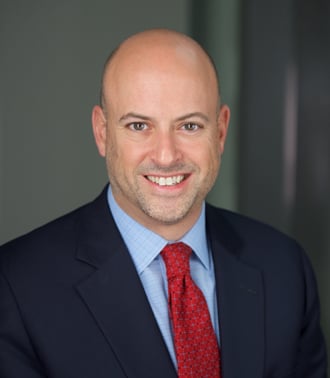Lit Alerts—July 2019
Federal Preemption: Second Circuit Affirms Dismissal Of Products Liability Case As Preempted
The Second Circuit Court of Appeals recently affirmed the Southern District of New York's (SDNY) dismissal of suits against Bristol-Myers Squibb Co. and Pfizer Inc. on the ground that the suits asserted state-law claims that were preempted by the Food, Drug, and Cosmetics Act (FDCA). The plaintiffs raised two issues on appeal: (1) that the SDNY should have remanded their suits to state court; and (2) that the FDCA did not preempt their state-law claims.
The first issue turned on whether a defendant sued in the state where it is incorporated may remove a suit based on diversity before the plaintiffs serve the defendant. The Court of Appeals concluded that 28 U.S.C. § 1441(b)(2) only prohibits an in-state defendant from removing based on diversity after that defendant is "properly joined and served." Thus, the defendants were permitted to remove the cases based on diversity because they did so before they had been served with process, as the plain meaning of § 1441(b)(2) allows, the Court held.
The second issue was whether the FDCA preempted state-law negligence and strict liability claims. That issue turned on whether the labeling changes that the plaintiffs claimed the defendants should have made would have required further review by the FDA or whether the defendants could have made the changes independently of FDA approval. The FDCA allows a manufacturer to unilaterally change a warning label on its products if the change will "add or strengthen a contraindication, warning, precaution, or adverse reaction" or "add or strengthen an instruction about dosing and administration that is intended to increase the safe usage of the drug product" when the labeling change will "reflect newly acquired information." State-law claims for warnings a defendant could have added to its label without further FDA approval because they are based on "newly acquired information" are not preempted by the FDCA.
The plaintiffs alleged that the manufacturers knew of reports and studies that would have constituted "newly acquired information" and should have led to new warning labels that the defendants could have added independently of FDA approval. The defendants countered that they had not learned of any risks to users of their drugs that they had not previously discussed with the FDA and, therefore, the labeling changes the plaintiffs desired could not be based on "newly acquired information." The Court of Appeals ruled that mere conclusions "about the existence of newly-acquired information" could not form the basis for a successful lawsuit absent further factual allegations about how the reports and studies the plaintiffs cited revealed a "different type of risk" than had previously been discovered. Because the plaintiffs had not alleged any such facts, the Court affirmed the SDNY's dismissal of the cases under FRCP 12(b)(6).
Employment: California District Court Holds That Employee Non-solicitation Clauses Are No Longer Enforceable
In WeRide v. Huang, the US District Court for the Northern District of California recently held, inter alia, that the non-solicitation clause in the employment agreement at issue was void under California law.
WeRide is an autonomous vehicle company based in Silicon Valley. To maintain the secrecy of its proprietary code, WeRide requires its employees to sign a Proprietary Information and Inventions Agreement (Agreement). The Agreement prohibits the solicitation of WeRide employees away from WeRide for one year after employment with WeRide ends.
Upon leaving WeRide for a competitor, the former Director of Hardware, Kun Huang, allegedly solicited other WeRide employees to join him. WeRide filed suit under the federal Defend Trade Secrets Act and California's Uniform Trade Secrets Act, in addition to asserting other state-law claims, including breach of the non-solicitation provision of the Agreement.
The Court denied WeRide's motion for preliminary injunction despite allegations that Huang breached the employee non-solicitation provision, and in doing so, relied on another Northern District decision, Barker v. Insight Global, and the California Court of Appeal's decision in AMN Healthcare v. Aya Healthcare, to conclude that "the [non-solicitation] clause . . . is void under California law" as an invalid restraint on employment.
This is the third case in the last seven months in which an employee non-solicitation clause was invalidated under California law.
© Arnold & Porter Kaye Scholer LLP 2019 All Rights Reserved. This newsletter is intended to be a general summary of the law and does not constitute legal advice. You should consult with counsel to determine applicable legal requirements in a specific fact situation.





